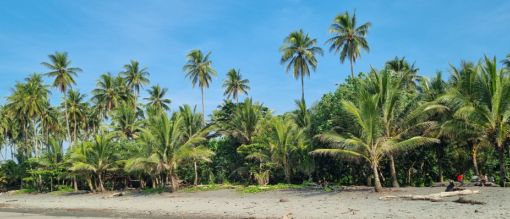On Tuesday 12th December, Jubilee Australia Research Centre sent a letter to Export Finance Australia on behalf of forty-six international civil society organisations calling for it to commit not to finance the Papua LNG project (another four have since backed this call). It is part of international efforts led by Papua New Guinea organisations – such as the Centre for Environmental Law and Community Rights – to raise alarm about the project.
“Last week, Australia committed to end all public finance to overseas fossil fuels when it signed onto the Clean Energy Transition Partnership (CETP). A decade ago, the Australia government handed over hundreds of millions of dollars in taxpayer money to finance an ExxonMobil project in PNG. That project has had truly awful impacts on local people and the environment, and its economic promises have failed to materialise. Around $170 million from that loan is still to be paid back,” said Shona Hawkes, Climate and Environmental Justice Director at Jubilee Australia.
“Today, ExxonMobil has teamed up with TotalEnergies and Santos on another climate bomb: Papua LNG. It will take place in Gulf Province – where communities are already hard hit by climate change, with some families having to move multiple times to escape worsening storms and rising oceans. During the life of the project, its scope 3 emissions will be equivalent to an entire year of emissions for the country of Bangladesh – a nation of almost 169 million people.”
“The question now is: will Australia honour or break its CETP promise? Civil society organisations are calling for Export Finance Australia to publicly rule out financing to Papua LNG. This is a very simple opportunity to start to build trust.”
The letter highlights that economic experts have pointed out that Papua LNG has very serious financial risks. It also raises concerns that the project appears unable or unwilling to show what resources it provided to communities to explain their rights to Free, Prior and Informed Consent – a human rights requirement under the Equator Principles standards which the project claims to meet.
In January, Jubilee Australia and the Centre for Environmental Law and Community Rights PNG published the Building on What Works report. This highlights that with adequate financing PNG could dramatically expand its on-grid energy use to meet its ambitious 2030 energy targets, and see 78% of energy coming from renewable energy. This would come at a fraction of the cost required for Papua LNG.
You can view the letter here.
Photo: Orokolo Bay Beach, Gulf Province, Papua New Guinea, courtesy CELCOR.
